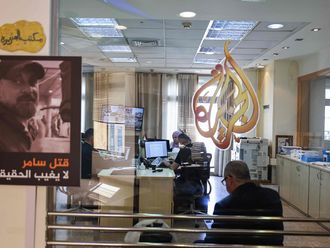Sa'ad, a peasant in Egypt's Delta, says his health has improved after he used live pigeons for treating Hepatitis C from which he had been suffering for years.
"I had a blood test, which showed that the virus count had dropped after using the pigeon treatment," he claimed.
Sa'ad, who declined to give his full name, is one of many Hepatitis C patients who have come to regard the controversial practice as a magical cure. The incidence of the disease in Egypt is among the world's highest.
The treatment, which has become popular in the Egyptian countryside, involves holding the backside of a young pigeon after removing its feathers on the patients' navel until the bird dies.
Practitioners claim the pigeon, which is usually three or four weeks old, dies after absorbing the virus into its body.
"This is a hoax. They claim the pigeon is an effective method of treatment because the bird allegedly has a virus which is stronger than the Hepatitis C virus. Nonsense! How can a little bird, which is three weeks old, command all this power?" said Dr Saeed Shalabi, professor of hepatology and internal medicine at Egypt's National Research Centre.
"Tests on the pigeons involved in this practice showed they had died from choking," he told Gulf News. "The birds had chest fractures caused by holding them tightly."
Dr Shalabi doubted that the navel could be a medium of contact between the patient's body and the suggested therapy.
"After the removal of the umbilical cord at birth, the navel becomes a knot of atrophied fibres through which blood can never flow."
The widespread practice prompted Egyptian health authorities to launch a nationwide crackdown on its practitioners.
Health Minister Dr Mohammad Awad Tag Eddin vowed in press remarks to continue "fighting those who seek to dupe patients with their bogus treatments for commercial purposes". The minister threatened practitioners of such illegal therapies they would be prosecuted and jailed.
Around eight million Egyptians are believed to suffer from hepatitis C. But Dr Shalabi says it is hard to give an exact figure.
"Patients do not go for check-ups regularly. They discover they are infected by chance when they go to do a blood test as a requirement when applying for a new job," he said.
Dr Mohammad Bastui, also a professor of hepatology at Al Azhar University, argues that the high cost of traditional treatment for Hepatitis C has popularised the use of pigeons.
"Desperate patients clutch at a straw. This virus is spread by contact with infected blood. But pigeons are not known to have the ability to suck viruses," Dr Bastui told this newspaper.
He added that the HCV was noted for its fluctuation.
"This means that a blood test can at one time show the virus rate low and at other time high. This is part of the virus' behaviour."
The writer is an Arab journalist based in Egypt
Treating Hepatitis with pigeons? Ask the Egyptians
Treating Hepatitis with pigeons? Ask the Egyptians












